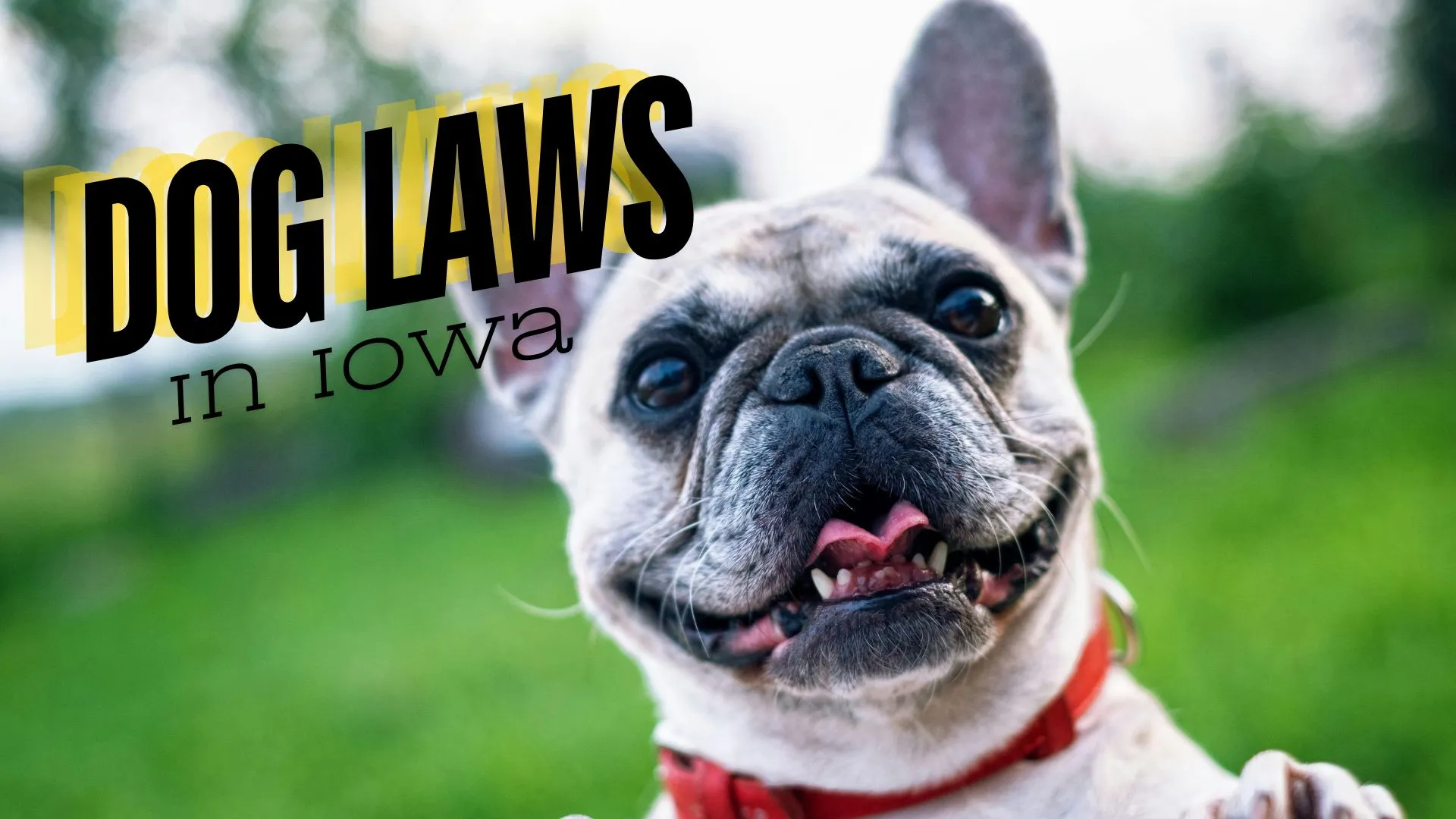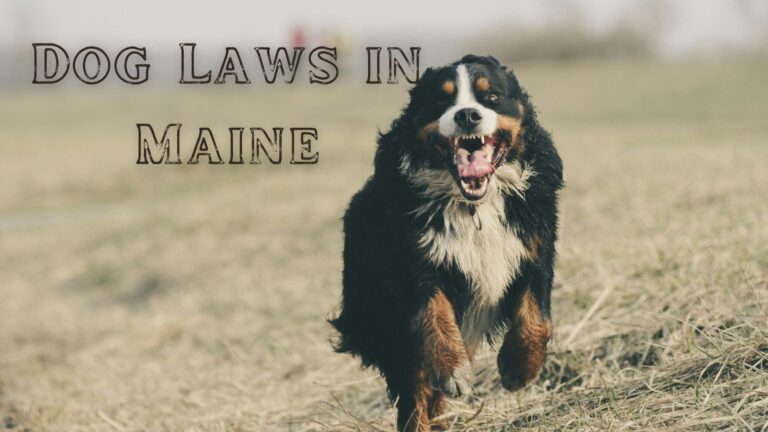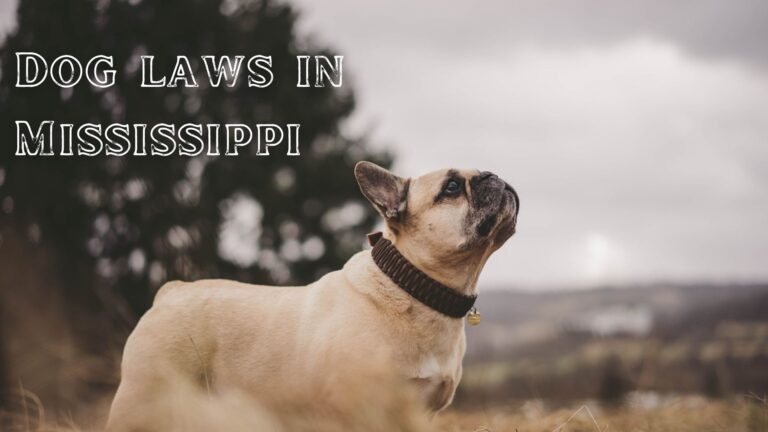Dog Laws in Iowa
Navigating the intricate web of dog laws in Iowa is crucial for pet owners and legal professionals alike. As a veterinarian with a deep understanding of these regulations, I’ve seen firsthand the impact they have on the welfare of our canine companions and the communities they live in.
In the United States, approximately 66% of households own a pet, with dogs being the most popular choice. This statistic underscores the importance of being well-versed in the various areas of law that affect dog ownership, including liability for bites, vaccination requirements, and the consequences of neglect or abuse.
In Iowa, for instance, owners must ensure their dogs are properly tagged and vaccinated against rabies. Understanding these laws not only helps in protecting the rights of pet owners but also ensures the safety and well-being of the dogs that so many consider part of their family.
Table of Contents
Dog Bite Laws in Iowa
In Iowa, dog owners are held to a standard of strict liability when it comes to dog bites and attacks. This means that if a dog bites or attacks a person or another domestic animal, the owner is liable for all damages resulting from the incident. The pertinent statute, Section 351.28 of the Iowa Code, outlines the responsibilities of dog owners and the legal recourse available to victims.
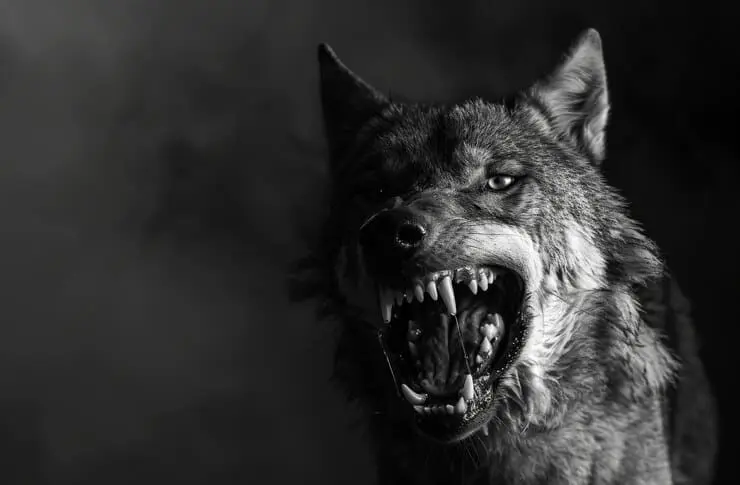
Strict Liability and Owner Responsibility
Under Iowa law, dog owners are responsible for injuries caused by their dogs, regardless of the animal’s previous behavior or the owner’s knowledge of its aggressiveness. This strict liability approach simplifies the process for victims seeking compensation, as they do not need to prove negligence or prior knowledge of the dog’s propensity for biting.
Exceptions to the Rule
There are notable exceptions to this rule. If the victim of the bite was committing an unlawful act, such as trespassing or provoking the dog, the owner may not be held liable. Additionally, if a dog has rabies, the owner is only liable if they knew or should have known about the condition and failed to take appropriate action.
Breed-Specific Legislation
Some areas in Iowa have implemented breed-specific legislation, such as bans on pit bulls. These laws are controversial and often debated, but they reflect a community’s response to concerns over certain dog breeds and public safety.
Statute of Limitations
Victims of dog bites in Iowa have a two-year statute of limitations to file a lawsuit after the incident. This time frame is critical for ensuring that legal action is taken promptly.
Case Studies and Precedents
Recent cases in Iowa have brought attention to the consequences of dog attacks and the legal proceedings that follow. These cases serve as precedents and highlight the importance of understanding local laws and the potential ramifications for dog owners and victims alike.
Dog Barking and Noise Laws in Iowa
In Iowa, as in many states, the laws regarding dog barking and noise are designed to balance the rights of pet owners with the need for peace and quiet in residential areas. While there is no statewide statute that specifies a legal duration for dog barking, local ordinances often address the issue, setting forth guidelines and penalties to manage excessive noise.
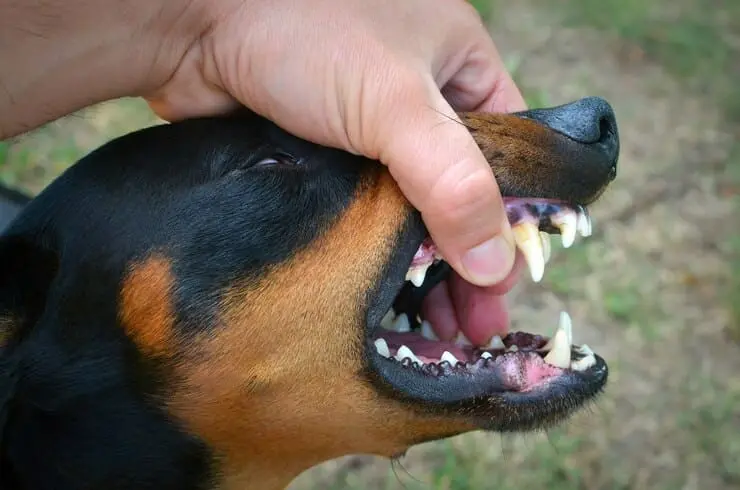
Local Ordinances and Regulations
For example, in Cedar Rapids, it is unlawful for any animal to make noise that unreasonably disturbs the peace for more than fifteen minutes in any one-hour period of any day. This is documented by three or more separate episodes of such noise in a sequential seven-day period. Similarly, the Dickinson County Sheriff’s Office states that it is unlawful for the owner of a dog to allow or permit the dog to cause annoyance or disturbance by frequent and habitual howling, yelping, barking, or otherwise.
Enforcement and Penalties
Enforcement of these laws typically falls to local animal control or law enforcement agencies. Penalties for violations can include fines, and in some cases, repeated offenses may lead to more severe consequences.
Best Practices for Dog Owners
As a responsible dog owner, it’s important to be aware of your local laws and to take steps to prevent your dog from becoming a nuisance to your neighbors. This can include training, the use of noise-reducing collars, and ensuring that your dog has enough exercise and stimulation to prevent boredom and excessive barking.
Dog Poop Disposal Laws in Iowa
In Iowa, maintaining the cleanliness of public and private spaces is a shared responsibility, especially when it comes to pet waste. The state’s approach to dog poop disposal is not only about courtesy but also about public health and environmental protection.
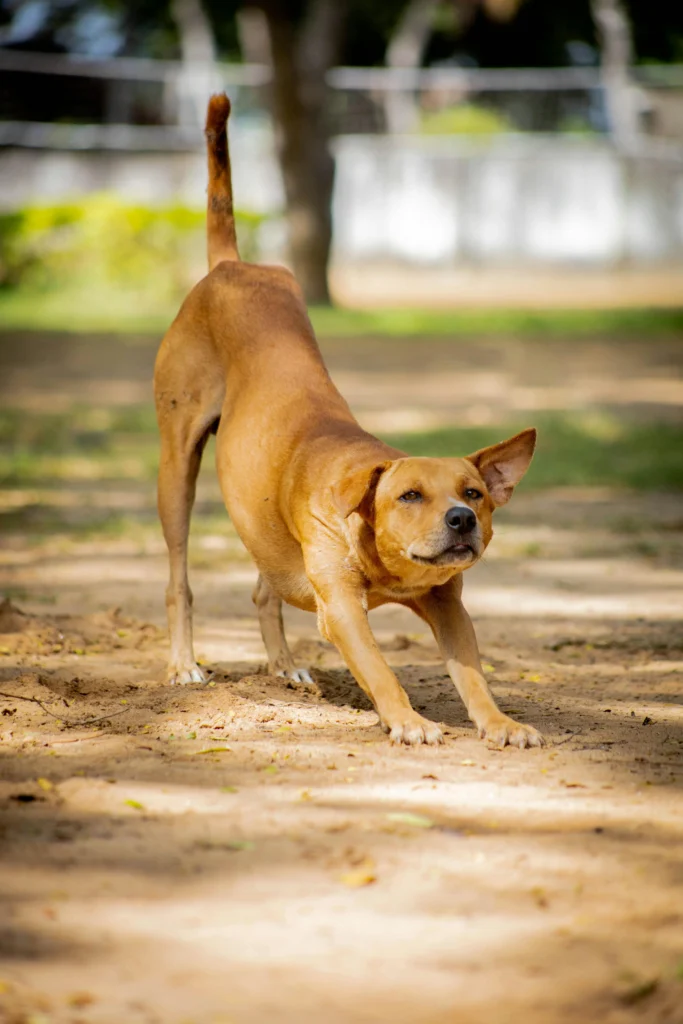
Statewide Regulations and Local Ordinances
While there are no specific statewide laws in Iowa that dictate how pet waste should be handled, local municipalities have set ordinances to ensure pet owners know their responsibilities. For instance, in Des Moines, pet owners are required to clean up and immediately remove any excrement deposited by their pets on any public or private property not owned or controlled by them.
Health and Environmental Concerns
Proper disposal of pet waste is critical as it contains harmful bacteria and parasites that can contaminate water sources and pose health risks to humans and other animals. It’s also a matter of civic responsibility to keep public areas clean and usable for everyone.
Best Practices for Dog Owners
Responsible dog owners should always carry bags for waste collection during walks and promptly dispose of the waste in designated trash bins or their own garbage. Composting or flushing pet waste are also viable options, provided they are done correctly to prevent environmental contamination.
Dog Licensing Laws in Iowa
In Iowa, dog licensing is a legal requirement that serves several important purposes: it helps reunite lost pets with their owners, ensures dogs are vaccinated against rabies, and supports the funding of local animal shelters.

Statewide Requirements and Local Ordinances
While there is no single statewide law for dog licensing, each municipality in Iowa has its own set of ordinances. For example, in Des Moines, all dogs and cats over six months of age must be licensed. The fees are due annually by January 1, with a grace period until March 31 before late fees are charged.
Rabies Vaccination and Identification
A critical component of the licensing process is the proof of rabies vaccination. Owners must provide a current rabies vaccination certificate when applying for a license. This ensures that all licensed dogs in Iowa are vaccinated, promoting public health and safety.
Licensing Fees and Discounts
The cost of licensing a dog in Iowa varies by location and whether the dog is spayed or neutered. Discounts are often available for senior citizens and for owners of spayed or neutered pets. Some municipalities also waive the fee for service animals with proper certification.
Enforcement and Penalties
Failure to license a dog can result in fines and penalties. Enforcement is typically carried out by local animal control officers who ensure compliance with licensing laws.
Dog Leash Laws in Iowa
In Iowa, the approach to dog leash laws varies by locality, but the overarching goal is to ensure public safety and the well-being of pets. These laws are designed to prevent dogs from running at large, which can lead to accidents, injuries, or even aggressive encounters.

Statewide Regulations and Local Ordinances
While Iowa does not have a statewide leash law, many municipalities have enacted their own regulations. For instance, in Oskaloosa, all pets must be leashed at all times unless they are confined by a tether at least 12 feet in length or within the owner’s enclosed property. Similarly, in state parks and preserves, no privately owned animal is allowed to run at large without permission from the commission.
Identification and Vaccination Tags
In addition to leash laws, all dogs in Iowa are required to have valid ID tags and a rabies vaccine tag attached to their collar. This ensures that dogs can be easily identified and are up-to-date on vaccinations, which is crucial for public health and safety.
Enforcement and Penalties
Enforcement of leash laws is typically carried out by local animal control officers. Penalties for violations can include fines, and in some cases, repeated offenses may lead to more severe consequences, such as impoundment.
Dangerous Dog Laws in Iowa
In Iowa, the laws pertaining to dangerous dogs are primarily enforced at the local level, with each community having the autonomy to address dog bite-related issues in ways that best suit their specific situations. This decentralized approach allows for tailored regulations that reflect the unique needs and concerns of different areas.

Statewide Provisions
While there is no comprehensive statewide dangerous dog law in Iowa, certain state statutes provide a framework for understanding owner liability and the definition of a dangerous dog:
- Owner Liability: According to Iowa Code Annotated, the owner of a dog is liable for all damages done by the dog when it is caught in the act of attacking or attempting to bite a person unless the injured party was committing an unlawful act.
- Rabies Vaccination: The law mandates that all dogs must have a valid rabies vaccination, which is a critical public health measure.
Local Ordinances
Local ordinances across Iowa may include, but are not limited to:
- Designation of Dangerous Dogs: Dogs may be classified as dangerous or vicious based on specific behaviors, such as unprovoked aggression or a history of attacks.
- Breed-Specific Legislation: Some localities have enacted breed-specific bans or restrictions, although these are subject to change and often debated at the legislative level.
- Confinement and Control: Regulations often require that dangerous dogs be securely confined on the owner’s property or leashed and muzzled when off-property.
- Reporting Requirements: Owners may be required to report any incidents of aggression or biting to local authorities.
- Liability Insurance: Owners of designated dangerous dogs might be required to carry liability insurance to cover potential damages from dog attacks.
Dog Health and Welfare Laws in Iowa
Iowa takes the health and welfare of dogs seriously, with laws in place to ensure that dogs are kept in safe and humane conditions.

Certificate of Veterinary Inspection (CVI)
All dogs and cats entering Iowa must have a CVI stating the animals appear to be free from disease or exposure to infectious or contagious diseases. A CVI is valid for 30 days from the date of inspection.
Rabies Vaccination
Iowa law requires all dogs over four months of age to be vaccinated for rabies with a USDA-approved vaccination, and the vaccination must be current.
Animal Welfare License
Commercial establishments, including breeders, pet shops, and boarding kennels, must be authorized to operate in the State of Iowa. This includes obtaining an Animal Welfare License with the state.
Temperature and Humidity Requirements
Proposed changes to strengthen companion animal welfare rules include more stringent temperature and humidity requirements to ensure the comfort and health of animals.
Solid Resting Surfaces
There are also proposals for solid resting surfaces for animals kept on wire flooring, which would provide better support and comfort for the animals.
Increased Access to Water
Another proposed change is increased access to water, ensuring that animals have adequate hydration at all times.
Isolation Area Requirements
To improve biosecurity and reduce the risk of disease spread, isolation area requirements are being considered.
Dog Public Access Laws in Iowa
In Iowa, public access laws for dogs primarily revolve around service animals and their rights to accompany their owners in various settings. These laws are in place to ensure that individuals with disabilities can fully participate in society with the assistance of their service animals.
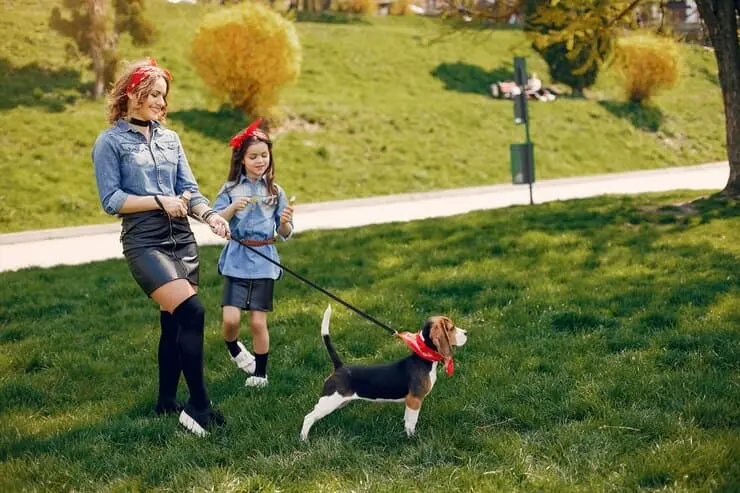
Service Animals and Public Accommodations
Under both Iowa law and the federal Americans with Disabilities Act (ADA), service animals are allowed in public accommodations such as restaurants, hotels, stores, theaters, and other places open to the public. A service animal is defined as a dog or miniature horse that is individually trained to perform tasks for a person with a disability.
Rights and Responsibilities
Owners of service animals have the right to be accompanied by their service animals without facing discrimination. Public accommodations cannot charge extra fees for service animals, although owners may be responsible for any damages caused by their animals.
Access to Outdoor Dining Areas
Specific regulations also exist for dogs in outdoor dining areas. For instance, dogs must access the outdoor area via a separate entrance and food preparation is not allowed in these areas.
Exclusions and Exceptions
While service animals have broad access rights, there are some exceptions. For example, if a service animal is out of control and the handler does not take effective action to control it, or if the animal is not housebroken, the animal may be excluded.
Dog Travel and Transportation Laws in Iowa
Traveling with pets in Iowa requires adherence to certain laws and regulations to ensure the safety and well-being of the animals during transportation.
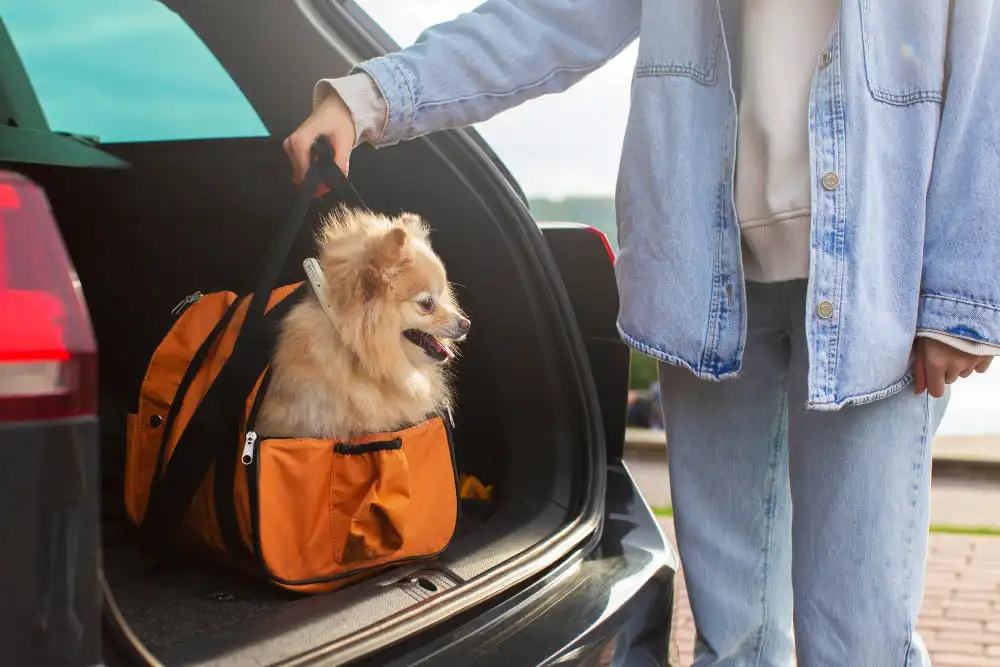
Certificate of Veterinary Inspection (CVI)
For dogs entering Iowa, a Certificate of Veterinary Inspection (CVI) is mandatory. This certificate confirms that the dog appears to be free from disease or exposure to infectious or contagious diseases. A CVI is valid for 30 days from the date of inspection.
Rabies Vaccination
All dogs over four months of age entering Iowa must be vaccinated for rabies with a USDA-approved vaccination, and the vaccination must be current.
Animal Welfare License
Commercial establishments involved in the transportation of dogs, such as breeders, pet shops, and boarding kennels, must have an Animal Welfare License issued by the State of Iowa.
Local Ordinances
Local municipalities may have additional regulations regarding the number of animals allowed in a home or specific zoning ordinances that affect the transportation of dogs within the area. It’s important to check local laws before traveling with a dog.
Dog Housing and Accommodation Laws in Iowa
In Iowa, the laws regarding dog housing and accommodation are particularly focused on service animals and their integration into residential living spaces.

Service Animals and Housing Rights
Under both Iowa law and the federal Americans with Disabilities Act (ADA), individuals with disabilities have the right to be accompanied by their service animals in housing accommodations. This includes apartments, rented homes, and other residential properties. Service animals are defined as dogs or miniature horses that are trained to perform tasks for a person with a disability.
Fair Housing Act Compliance
Iowa’s laws align with the federal Fair Housing Act, prohibiting discrimination against those who use service animals. Landlords must provide full and equal access to all housing facilities for tenants with service animals and cannot charge extra fees for accommodating a service animal.
Emotional Support Animals
While emotional support animals provide therapeutic benefits, they are not covered under the same laws as service animals unless they are specifically trained to assist someone with a disability. In Iowa, the distinction between service animals and emotional support animals is significant when it comes to housing laws.
Landlord and Tenant Responsibilities
Landlords are required to make reasonable accommodations for tenants with service animals, which may include modifying no-pet policies. Tenants, on the other hand, are responsible for any damage caused by their service animals and must ensure that their animals do not pose a direct threat to the health or safety of others.
Dog Adoption and Sale Laws in Iowa
In Iowa, the laws governing dog adoption and sale are designed to protect the welfare of animals and ensure responsible pet ownership.

Certificate of Veterinary Inspection (CVI)
All dogs and cats entering Iowa must have a CVI stating the animals appear to be free from disease or exposure to infectious or contagious diseases. A CVI is valid for 30 days from the date of inspection.
Rabies Vaccination
All dogs over four months of age entering Iowa must be vaccinated for rabies with a USDA-approved vaccination, and the vaccination must be current.
Animal Welfare License
Commercial establishments, including breeders, pet shops, and boarding kennels, must be authorized to operate in the State of Iowa. This includes obtaining an Animal Welfare License with the state.
Spay and Neuter Requirements
Iowa code law requires all dogs and cats adopted out by a licensed animal shelter to be spayed or neutered.
Local Zoning and Number of Animals
Local municipalities may have zoning ordinances or stricter rules/laws regarding the number of animals allowed in a home. You must follow whichever law is most restrictive.
Dog Park and Recreation Laws in Iowa
In Iowa, dog parks are a popular destination for pet owners looking to give their furry friends a place to play and socialize. The laws and regulations governing these areas are designed to ensure safety and enjoyment for all.

General Regulations
- Permits and Tags: Dogs must display a park permit tag or a day pass to use off-leash dog parks. Owners without permits or passes may be fined.
- Age and Vaccination: Dogs must be at least 16 weeks old and fully vaccinated for rabies to enter the parks.
- Leash Requirements: Dogs must be on a leash when entering or exiting the off-leash area and be under the handler’s visual contact and voice control at all times.
Prohibited Dogs
- Aggressive Behavior: Dogs that exhibit vicious, dangerous, or aggressive behavior are not allowed in the parks.
- Health Concerns: Dogs with communicable diseases or those in heat are also prohibited from entering the parks.
Owner Responsibilities
- Waste Disposal: Owners must clean up after their dogs; biodegradable waste disposal bags and receptacles are provided.
- Supervision: Owners must supervise their dogs and carry leashes at all times within the park.
- Behavior Control: Owners should discourage excessive barking and dominating behavior and fill any holes dug by their dogs.
Restrictions
- Collars: Pinch, choke, and spike collars must be removed prior to entering the park.
- Number of Dogs: There is typically a limit to the number of dogs one person can bring into the park at a time.
Children and Park Use
- Age Limit: Children must be at least 16 years old to accompany a dog at the park without adult supervision. Younger children must be supervised at all times.
Dog Food and Nutrition Laws in Iowa
In Iowa, pet food is classified as commercial feed, and there are specific regulations that manufacturers and distributors must follow to ensure the safety and nutritional adequacy of the products they offer.
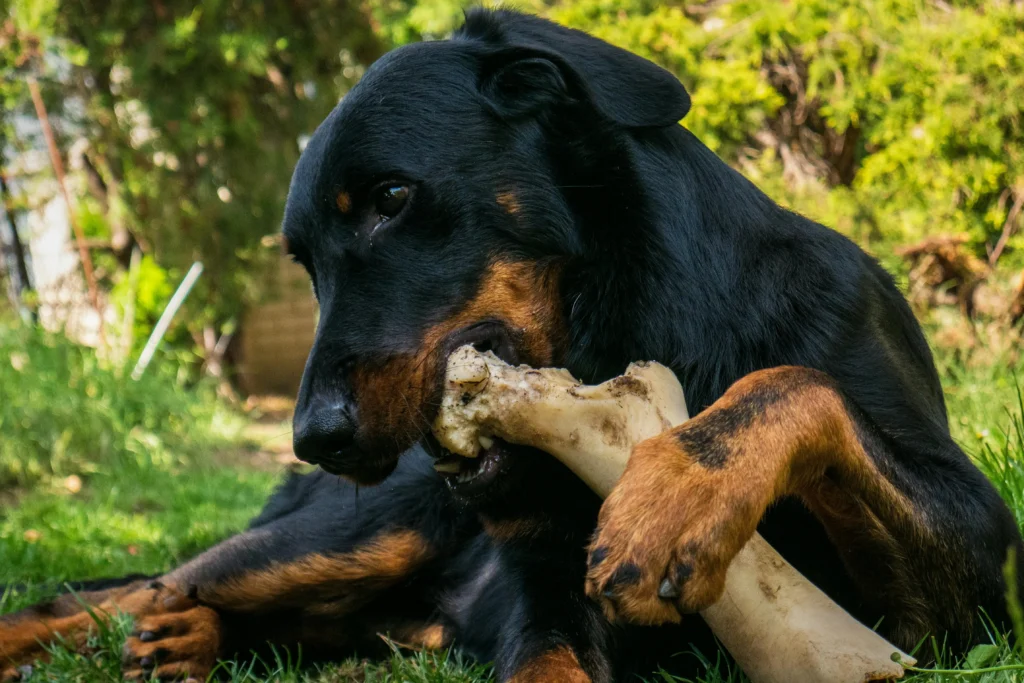
Pet Food Registration
All pet food manufactured or distributed in Iowa must be registered with the state. This includes pet food sold at farmers’ markets, online, in veterinarian offices, and local stores. The labels must comply with all state and federal regulations, including content, placement, typeface, and claims.
Labeling Requirements
Labels must include the name of the product, ingredients, guaranteed analysis, feeding directions, and the label guarantor. Calorie count must also be included if it differs between products. Labels are considered part of the product and must be consistent across all promotional materials.
Licensing and Fees
A commercial feed license is required for any facility that manufactures or distributes commercial feed into Iowa. The renewal of this license occurs every odd-numbered year, and there is a fee associated with it. Additionally, there are tonnage fees for pet food products packaged in weight over 10 pounds.
Penalties
There are penalties for non-compliance with registration and labeling requirements. These can include a percentage of the total fees or a flat fee, whichever is greater. New products may be registered at any time during the calendar year and are exempt from penalties.
Health and Welfare Considerations
It’s illegal in Iowa to neglect confined animals by failing to provide them with adequate food and water, sanitary conditions, ventilated shelter that protects them from the weather, and veterinary care and grooming that’s needed to prevent suffering or negative health effects.
Dog Health and Veterinary Care Laws in Iowa
In Iowa, the health and veterinary care of dogs are governed by a combination of state laws and regulations to ensure the well-being of these animals.
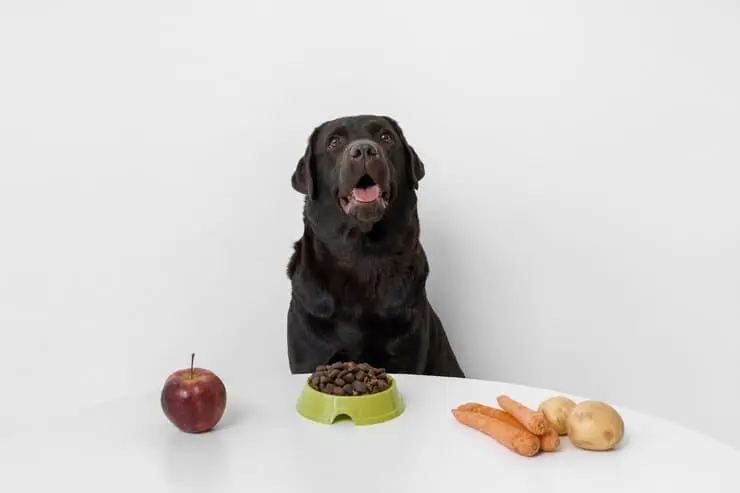
Certificate of Veterinary Inspection (CVI)
All dogs entering Iowa must have a CVI stating the animals appear to be free from disease or exposure to infectious or contagious diseases. A CVI is valid for 30 days from the date of inspection.
Rabies Vaccination
Iowa law requires all dogs over four months of age to be vaccinated for rabies with a USDA-approved vaccination, and the vaccination must be current.
Animal Welfare License
Commercial establishments, including breeders, pet shops, boarding kennels, dealers, rescues, research facilities, and others, must be authorized to operate in the State of Iowa. This includes obtaining an Animal Welfare License with the state.
Local Zoning and Number of Animals
Local municipalities may have zoning ordinances or stricter rules/laws regarding the number of animals allowed in a home. You must follow whichever law is most restrictive.
Neglect and Cruelty Prohibitions
It’s illegal in Iowa to neglect confined animals by failing to provide them with adequate food and water, sanitary conditions, ventilated shelter that protects them from the weather, and veterinary care and grooming that’s needed to prevent suffering or negative health effects.
Dog Identification and Microchipping Laws in Iowa
In Iowa, the laws surrounding dog identification and microchipping are not mandated at the state level, but local municipalities may have their own regulations to ensure pets can be easily identified and returned to their owners if lost.
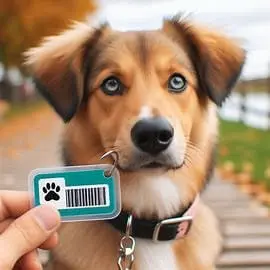
Microchipping as a Standard Practice
While not legally required statewide, microchipping is widely recommended by veterinarians and animal welfare organizations in Iowa. It is considered a standard practice for responsible pet ownership and is often performed when pets reach a certain age, typically around four months.
Local Ordinances
Some localities may require microchipping as part of their pet licensing process. It’s important for dog owners to check with their local animal control or city clerk’s office to understand the specific requirements in their area.
Benefits of Microchipping
Microchipping provides a permanent form of identification that cannot be lost like a collar or tag. It significantly increases the chances of a lost pet being reunited with its owner. Shelters and veterinary clinics can scan a found pet for a microchip and access the owner’s contact information through a national database.
Microchipping Events
Animal welfare organizations, such as the Animal Rescue League of Iowa, may host microchipping events throughout the year, offering the service at a reduced cost or even for free.
Dog Breeding and Genetics Laws in Iowa
In Iowa, dog breeding is regulated to ensure the health and welfare of dogs and to maintain responsible breeding practices.

Licenses and Permits
Under Iowa law, dog breeders are required to have a license if they sell or adopt more than four litters of puppies or kittens per year or if they maintain more than three adult breeding female dogs. Breeders must apply for an annual license for the first year and then a three-year license in subsequent years.
Care and Housing Requirements
Iowa dog breeders must meet certain care and housing requirements. These include providing adequate space, proper nutrition, necessary veterinary care, and appropriate socialization for the animals.
Training and Socialization Requirements
Breeders are also expected to provide training and socialization opportunities for the dogs to ensure they are well-adjusted and suitable for adoption or sale.
Genetic Testing and Responsible Breeding
While not explicitly mandated by law, responsible breeders in Iowa often engage in genetic testing and selective breeding practices to reduce the incidence of hereditary diseases and to improve the overall health of the breeds they work with.
Commercial Breeder Regulations
A bill has been proposed to define a commercial breeder as one who keeps five or more cats or dogs at any time during 12 consecutive months, breeds those dogs or cats, and meets certain criteria related to the sale or keeping of a specific number of dogs. This bill aims to refine the definition of a commercial operation and establish new regulations and a license fee schedule for those who meet this definition.
Dog Environmental Impact Laws in Iowa
In Iowa, environmental impact laws concerning dogs are primarily focused on ensuring that pet ownership does not adversely affect the local ecosystem, wildlife, and public spaces.

Waste Management
One of the key aspects of environmental impact is the management of pet waste. Local ordinances typically require dog owners to promptly clean up after their pets in public areas to prevent contamination of waterways and public spaces.
Leash Laws and Wildlife Protection
Leash laws also play a role in protecting wildlife. By keeping dogs on leashes in designated areas, especially near wildlife habitats, owners can prevent their pets from disturbing or harming native species.
Breed-Specific Legislation and Environmental Safety
Some communities in Iowa have breed-specific legislation that may indirectly impact the environment by regulating the presence of certain breeds deemed to pose a greater risk to public safety and, by extension, to wildlife and the environment.
Commercial Breeding Regulations
Commercial breeding operations are subject to regulations that include environmental considerations, such as waste management and proper disposal of byproducts, to minimize their ecological footprint.
Environmental Enforcement Actions
The Iowa Attorney General’s office prosecutes civil environmental enforcement actions, which can include cases related to animal feeding operations and the impact they have on the environment, pursuant to Iowa Code chapters 455B and 459.
Dog Behavioural Training Laws in Iowa
In Iowa, dog behavioral training is not regulated by specific laws at the state level, but there are guidelines and regulations that apply to service animals and their training.
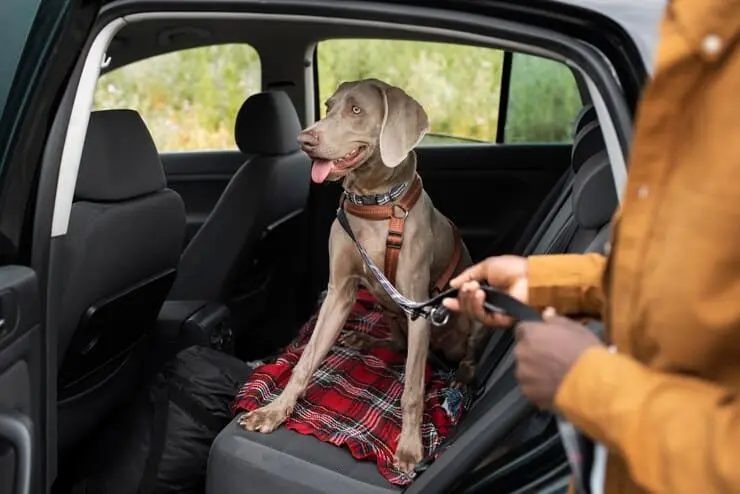
Service Animal Regulations
The state of Iowa has regulations concerning service animals, which include dogs that are trained to perform tasks for individuals with disabilities. These regulations ensure that service animals are allowed in public accommodations and adhere to the standards set by the Americans with Disabilities Act (ADA).
Service Animals in Training
Iowa law specifically covers service animals in training, providing them with the same access rights as fully trained service animals. This includes dogs undergoing training to perform tasks that directly relate to the disability of an individual.
Dog Training and Trialing
While not directly related to behavioral training, the Iowa Department of Natural Resources outlines rules for dog training and trialing, which are activities involving sporting dogs. These rules are in place to protect the health and welfare of native wildlife populations and to ensure that hunting regulations are enforceable.
Dog Protection and Rescue Laws in Iowa
In Iowa, dog protection and rescue laws are designed to ensure the humane treatment of animals and to provide legal frameworks for their welfare and protection.

Animal Welfare License
All commercial establishments involved in the care, rescue, or sale of dogs must be authorized to operate in the State of Iowa. This includes obtaining an Animal Welfare License, which ensures that these facilities comply with state regulations regarding animal health and safety.
Animal Cruelty Legislation
The Animal Cruelty Bill HF737, signed into law, has made significant improvements to Iowa’s companion animal cruelty laws. It clarifies legal definitions of animal cruelty crimes, implements mental health evaluations for convicted animal abusers, and increases penalties for most animal cruelty cases.
Minimum Standards of Care
The law imposes comprehensive minimum standards of care, including proper quality of food/water, veterinary care, sanitary living conditions, protection from the elements, and basic grooming to avoid undue pain and suffering.
Neglect and Abuse
It’s illegal in Iowa to neglect confined animals by failing to provide them with adequate food and water, sanitary conditions, ventilated shelter that protects them from the weather, and veterinary care and grooming that’s needed to prevent suffering or negative health effects.
Reporting Animal Cruelty
Iowa law states that animals must have food, water, veterinary care, and adequate shelter provided to them. If an individual discovers that an animal is not getting needed care, they should report it immediately.
Dog Entertainment and Work Laws in Iowa
In Iowa, laws regarding dog entertainment and work primarily focus on service animals and their rights and responsibilities in various settings.

Service Animals in Public Accommodations
Under both Iowa law and the Americans with Disabilities Act (ADA), service animals are allowed in public accommodations such as restaurants, hotels, stores, theaters, and other places open to the public. A service animal is defined as a dog or miniature horse that is individually trained to perform tasks for a person with a disability.
Service Animals in Training
Iowa law specifically covers service animals in training, providing them with the same access rights as fully trained service animals. This includes dogs undergoing training to perform tasks that directly relate to the disability of an individual.
Rights and Responsibilities
Owners of service animals have the right to be accompanied by their service animals without facing discrimination. Public accommodations cannot charge extra fees for service animals, although owners may be responsible for any damages caused by their animals.
Entertainment Venues
When it comes to entertainment venues, such as theaters and performance spaces, service animals must be permitted to accompany their handlers. However, the law does not specifically address non-service animals used for entertainment purposes, such as in shows or races.
Workplace Accommodations
Employers in Iowa are required to make reasonable accommodations for employees with disabilities, which may include allowing service animals in the workplace. The goal is to enable the employee to perform their job duties effectively.
Dog Technology and Innovation Laws in Iowa
In Iowa, as in many states, the laws surrounding pet technology and innovations in dog health are evolving to keep pace with advancements in the field.

Pet Food and Nutrition Regulations
Pet food, which includes dog food, is classified as commercial feed in Iowa and must be registered with the state. This includes compliance with state and federal regulations regarding labeling, which covers contents, placement, typeface, and claims. These regulations ensure that pet food products, including those enhanced by technology for nutritional optimization, meet safety and quality standards.
Animal Welfare and Technology
The Iowa Code provides a legal framework for the humane treatment of animals, which extends to the use of technology in their care. For instance, the code outlines the responsibilities of pet owners and the legal recourse available to victims in cases of dog bites, which could involve technologically advanced pet monitoring systems.
Innovations in Veterinary Care
While specific regulations on innovations in dog health technology are not detailed in the Iowa Code, the state’s veterinary practice act would govern the use of any new technologies in veterinary medicine. This includes diagnostic tools, treatment devices, and other technological advancements used in the care of dogs.
Digital Revolution in Animal Health
The digital revolution in animal health is bringing about predictive, monitoring, and diagnostic technologies that enable tailored care and better welfare for animals. While specific laws in Iowa may not yet address these innovations directly, they fall under the broader scope of veterinary practice and animal welfare regulations.
Human Coexistence Laws in Iowa
In Iowa, laws promoting the cohabitation and bonding between dogs and humans are centered around ensuring the rights of individuals with disabilities to be accompanied by their service animals, as well as the responsible ownership and treatment of pets.

Service Animals and Disability Rights
Under the Iowa Civil Rights Act and the federal Americans with Disabilities Act (ADA), individuals with disabilities have the right to be accompanied by their service animals in public accommodations. This includes restaurants, hotels, stores, theaters, and other places open to the public. Service animals are defined as dogs that are specially trained to assist a person with a disability.
Housing Accommodations
Iowa law and the federal Fair Housing Act prohibit discrimination in housing accommodations against those who use service animals. Individuals must be allowed full and equal access to all housing facilities and may not be charged extra for having a service animal, although they may be responsible for any damages caused by the animal.
Emotional Support Animals
While emotional support animals provide therapeutic benefits, they are not covered under the same laws as service animals unless they are specifically trained to assist someone with a disability. In Iowa, the distinction between service animals and emotional support animals is significant when it comes to housing laws.
Public Health and Safety
Iowa’s laws also focus on public health and safety concerning the cohabitation of dogs and humans. This includes regulations on rabies vaccinations, leash laws, and waste management to ensure that dogs do not pose a health risk to the community.
Other Relevant Dog Laws in Iowa
Canine Good Citizen Programs and Legal Benefits in Iowa
The Canine Good Citizen (CGC) Program is a certification program that teaches good manners to dogs and responsible dog ownership to their owners. While the CGC program itself does not confer legal benefits, it can be a stepping stone to becoming a therapy dog or participating in other activities that require well-behaved dogs.
Dog Insurance and Coverage Laws in Iowa
In Iowa, pet insurance policies are available to cover unexpected veterinary expenses. However, standard homeowners or renters insurance policies typically do not cover damage caused by your own pets.
Laws Regarding Dogs in Hot Cars and Animal Endangerment in Iowa
Iowa does not have specific laws that allow citizens to rescue dogs in hot cars. However, general animal cruelty laws would apply to situations where an animal’s life is endangered due to extreme temperatures.
Legal Aspects of Dog Parks and Shared Spaces in Iowa
Dog parks in Iowa must adhere to local regulations, which may include requirements for fencing, separate areas for large and small dogs, and rules for behavior within the park. Owners are typically responsible for their dogs’ actions in these shared spaces.
Dog-Related Property Damage and Homeowner’s Insurance in Iowa
Homeowners insurance in Iowa generally does not cover damage caused by the policyholder’s own pets. However, liability protection may cover damages if your pet destroys someone else’s property.
Service and Working Dog Laws in Employment and Public Access in Iowa
Iowa law requires public accommodations and employers to allow service dogs and working dogs to accompany individuals with disabilities. This includes service animals in training as well.
Animal Welfare and Protection Laws Against Neglect and Abandonment in Iowa
Iowa has laws against the neglect and abandonment of animals. These laws require adequate food, water, shelter, and veterinary care to prevent suffering or negative health effects. Violations can lead to criminal charges.
In conclusion, the comprehensive overview of dog laws in Iowa underscores the importance of responsible pet ownership and adherence to legal standards. From ensuring public safety through leash and bite laws to promoting animal welfare with anti-cruelty statutes, these regulations are pivotal for harmonious coexistence between dogs, their owners, and the broader community. The legal framework governing service animals, dog parks, and breeding practices reflects a commitment to both the well-being of dogs and the rights of individuals with disabilities.
Compliance with these laws not only safeguards the health and safety of pets and people but also fosters a respectful and considerate society. By staying informed and abiding by these laws, dog owners contribute to a more humane and just environment, where the bond between humans and their canine companions can thrive within the bounds of mutual respect and care.
FAQs
Are there any breed-specific laws in Iowa?
While Iowa does not have statewide breed-specific legislation, some cities and counties may have their own restrictions or bans on specific dog breeds. It’s important to check local ordinances for any breed-specific regulations.
Is microchipping mandatory for dogs in Iowa?
Iowa does not have a statewide law that mandates microchipping for dogs. However, many veterinarians and animal shelters highly recommend microchipping as it greatly increases the chances of a lost pet being reunited with its owner.
hat are the requirements for bringing a dog into Iowa?
Dogs entering Iowa must have a Certificate of Veterinary Inspection (CVI) stating they are free from disease or exposure to infectious diseases. Additionally, all dogs over four months of age must be vaccinated for rabies with a USDA-approved vaccine.
Do I need a license to operate a dog breeding facility in Iowa?
Yes, commercial breeders in Iowa are required to obtain an Animal Welfare License if they sell or adopt out more than four litters per year or maintain more than three adult breeding female dogs
What should I do if I witness animal cruelty or neglect in Iowa?
If you witness animal cruelty or neglect, you should report it immediately to local law enforcement or animal control. Iowa has laws against animal neglect and cruelty, and violators can face criminal charges.

